When to plant snowdrop bulbs – experts reveal the perfect time for stunning winter blooms
Timing is everything if you want to brighten up your garden for winter
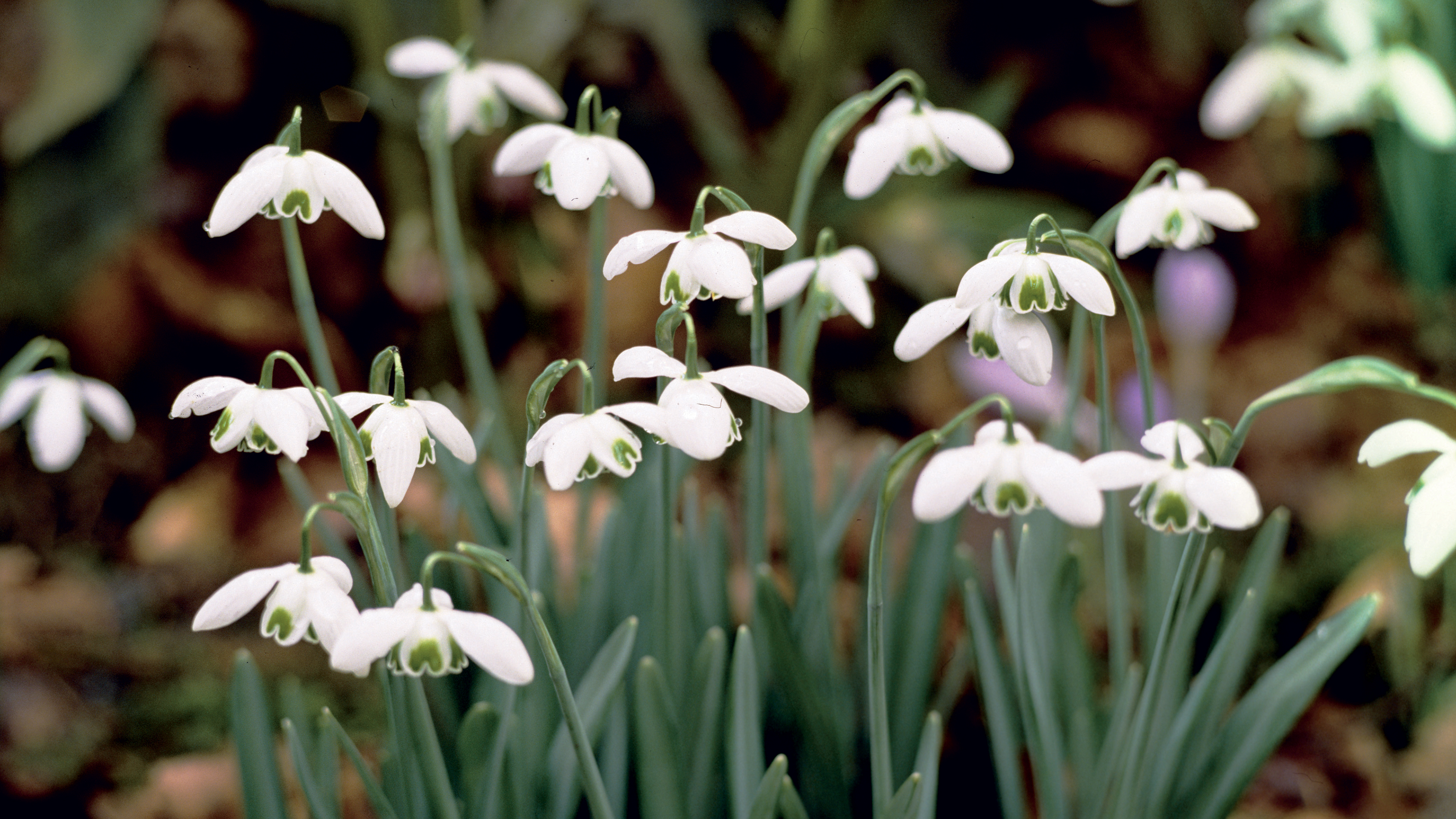

Knowing when to plant snowdrop bulbs is a very delicate business. Just as delicate, in fact, as the stunning winter-flowering plants themselves.
But if you’re committed to bringing your garden ideas to life next year, it’s important to get yourself prepared. And as snowdrops will be among the first plants to flower in 2024, knowing when to plant bulbs for spring is something you need to consider sooner rather than later.
In fact, the time has almost come for you to plant your nodding snowdrop bulbs ready for a gorgeous winter garden. And why not try making a bulb lasagne with your snowdrops? Yes, we said lasagne!
When to plant snowdrop bulbs
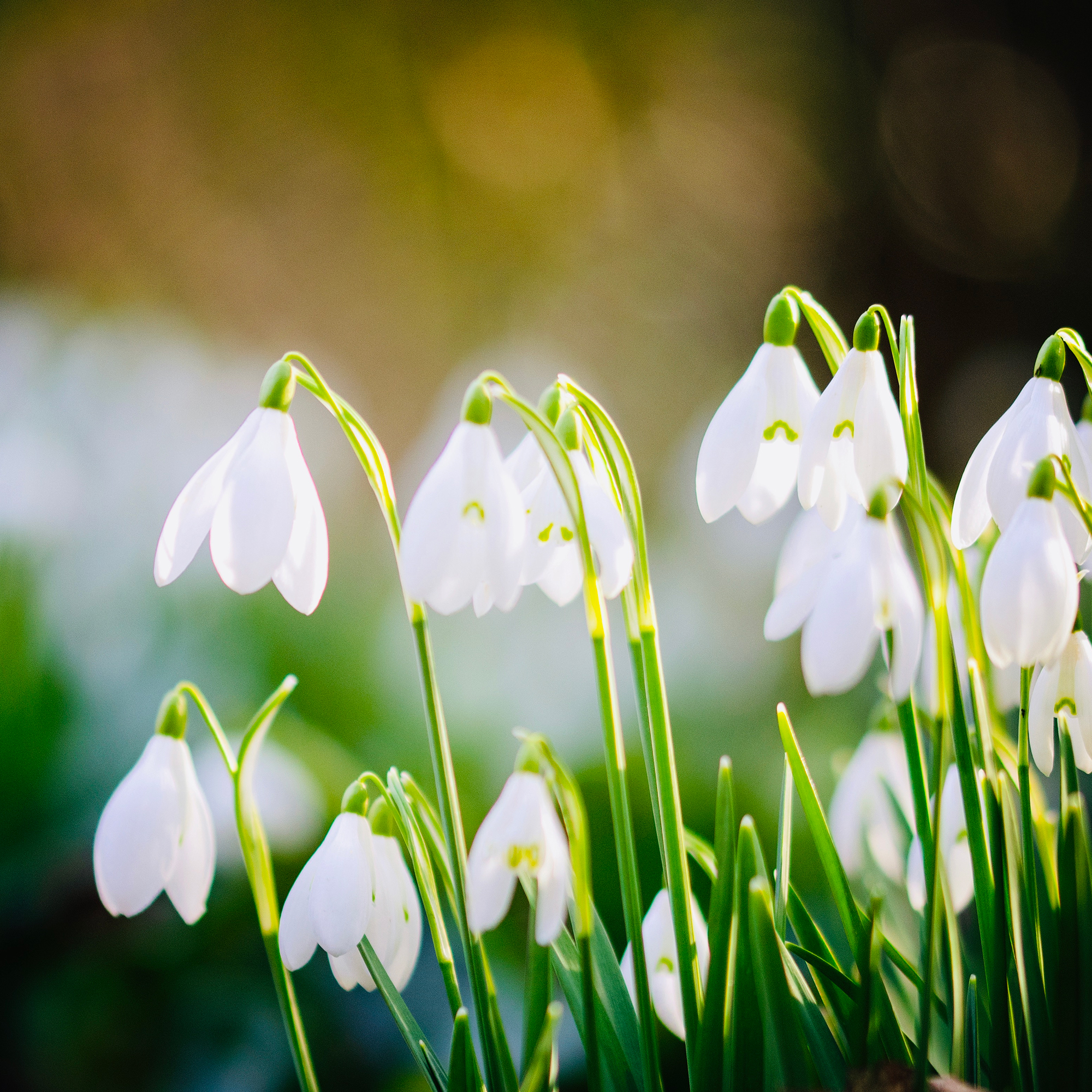
What you might not know about snowdrops is that there are two different ways to plant them; in the green or in bulbs. If you want to plant your snowdrops in the green, you’ll want to do that around February-March time. But if you want to plant dry bulbs, the opportune time is coming soon.
‘Snowdrop bulbs are best planted around mid-autumn, somewhere during October and November. They don't take well to dry soil, so this time of year provides helpful moisture,’ says Steve Chilton, garden expert at LeisureBench.
By planting them during this late autumn period, they should have plenty of time to establish themselves over the winter. And they’re some of the best winter flowers to plant if you want colourful blooms for the festive period, as they should be ready to flower between January and March.
How to plant snowdrop bulbs
The delicate nodding of snowdrops is a welcome addition to any garden, and you’ll be happy to know that it’s very easy to plant snowdrop bulbs. Just follow these steps.
What you’ll need
- Snowdrop bulbs
- Trowel
- Well-draining soil
Step-by-step
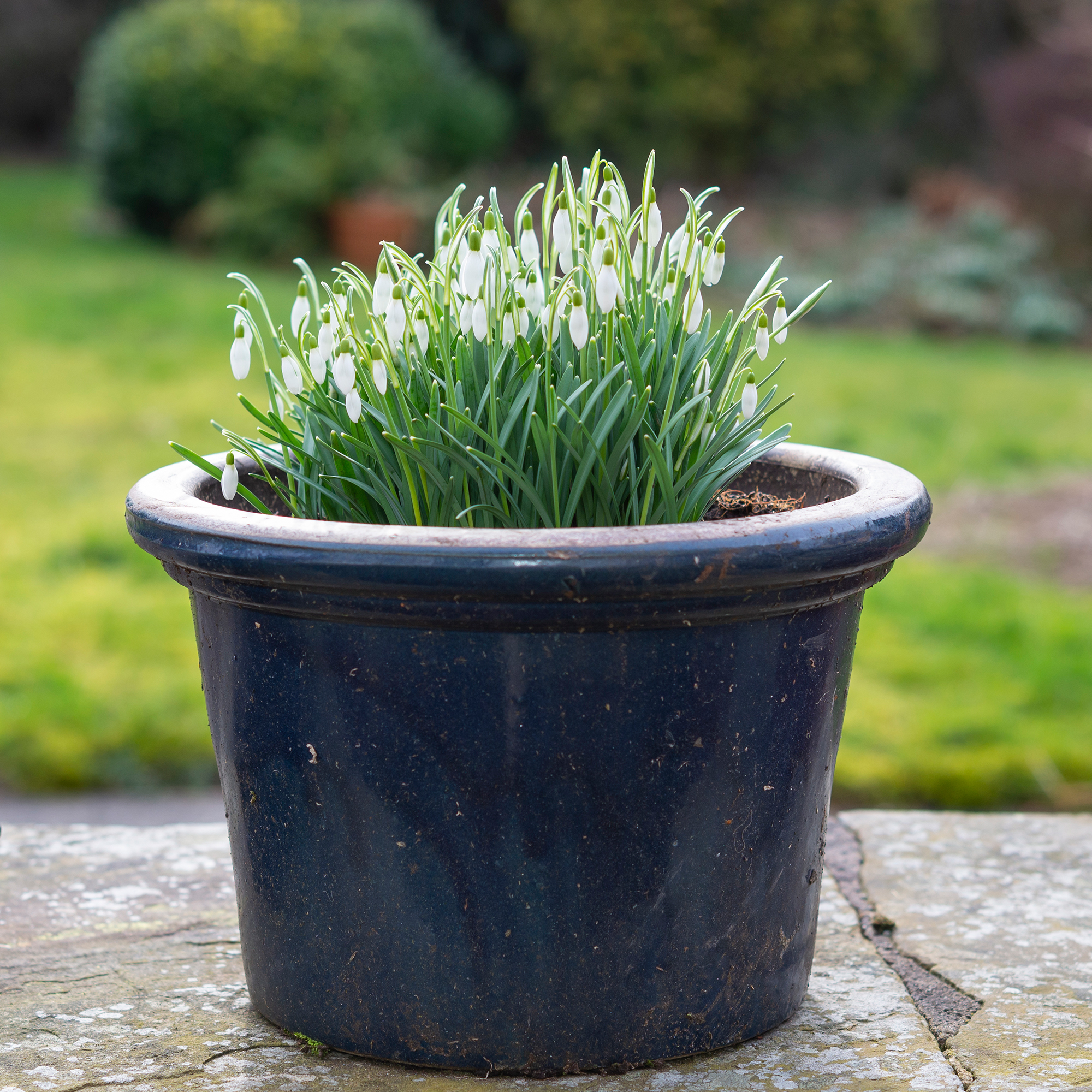
1. Choose the right spot
No matter whether you want to grow snowdrops in pots or in your garden borders, choosing the right spot to plant your bulbs is key, so you'll need to work out the best place to plant snowdrops.
To make the most out of your bulbs, plant them in moist but well-draining soil that offers some shade. In fact, they love growing in front of larger shrubs, with other plants, and even in rock gardens, as these things all offer bulb protection when the snowdrops fall into hibernation.
You can also grow snowdrops in pots, but bulbs struggle during the warmer months and will need to be kept watered at all times. Plus, you’ll have to re-pot them each year.
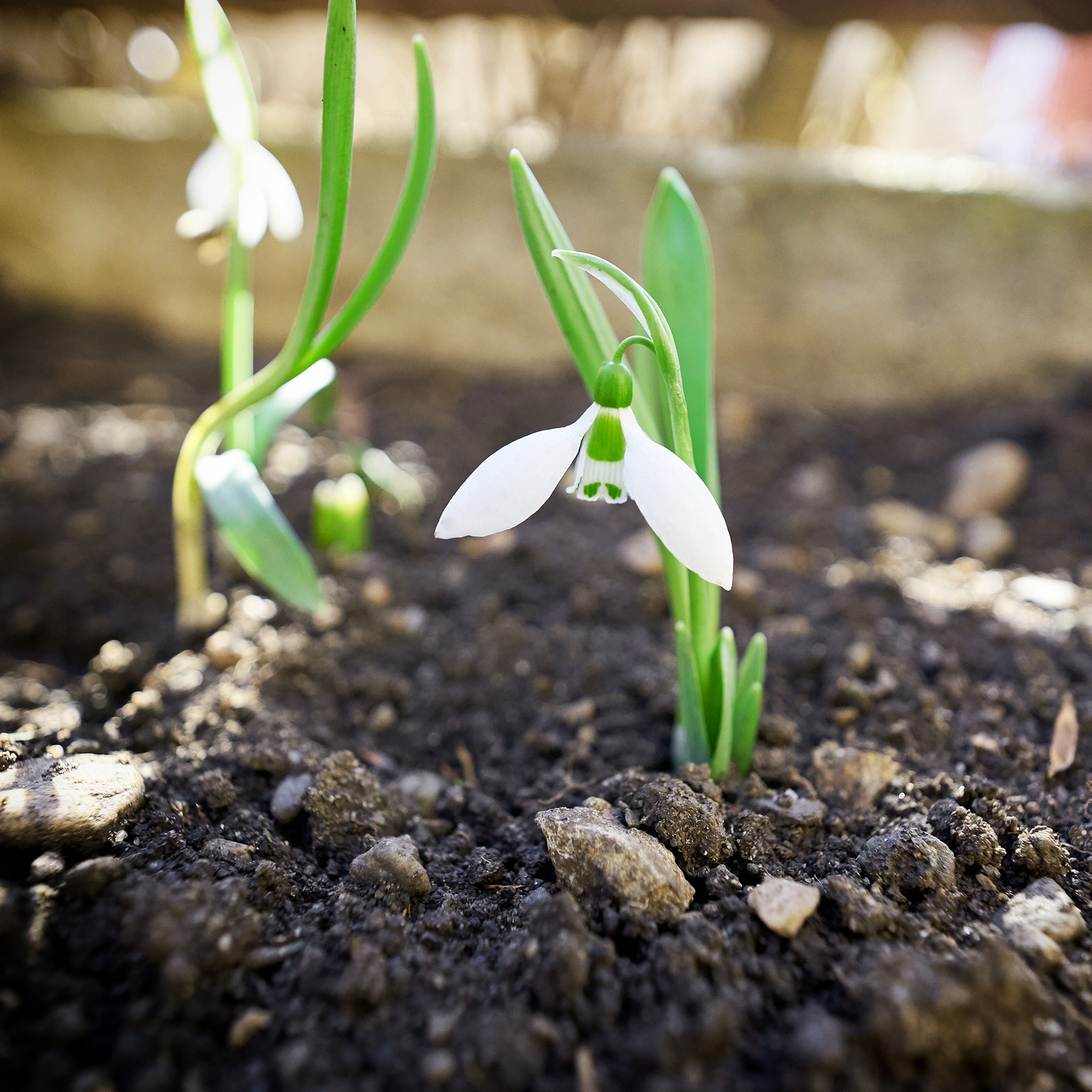
2. Dig your holes
When you’ve settled on the perfect location for your snowdrop bulbs, you can then get started on digging your holes. As it’s always recommended that you plant around 10-25 bulbs at a time for the most beautiful results, you need to make sure that these holes aren’t too close together.
With snowdrops, it’s best to opt for the 10/10 method. This means that you should always plant each bulb 10cm apart while also planting them 10cm deep.

3. Plant your bulbs
Once you’ve prepared the holes for your bulbs, you then need to plant them. To do this, simply place each bulb into a hole with the pointed end facing up. Then, backfill the soil.
However, Steve has shared a handy hack for those looking to plant numerous snowdrop bulbs at once. ‘If you're planting in large groups, then it's easier to dig a small trench rather than individual holes for each bulb. Make sure to cover with well-draining soil for the best results.’
Once you’ve done that, you shouldn’t need to do anything else. ‘Once your snowdrops are established, they won’t require any maintenance,’ says gardening expert Oliver Johnson at HomeAdviceGuide.com. ‘You can just leave them alone and allow the foliage to die back naturally. This will allow the nutrients from the leaves to return to the bulbs and roots.’
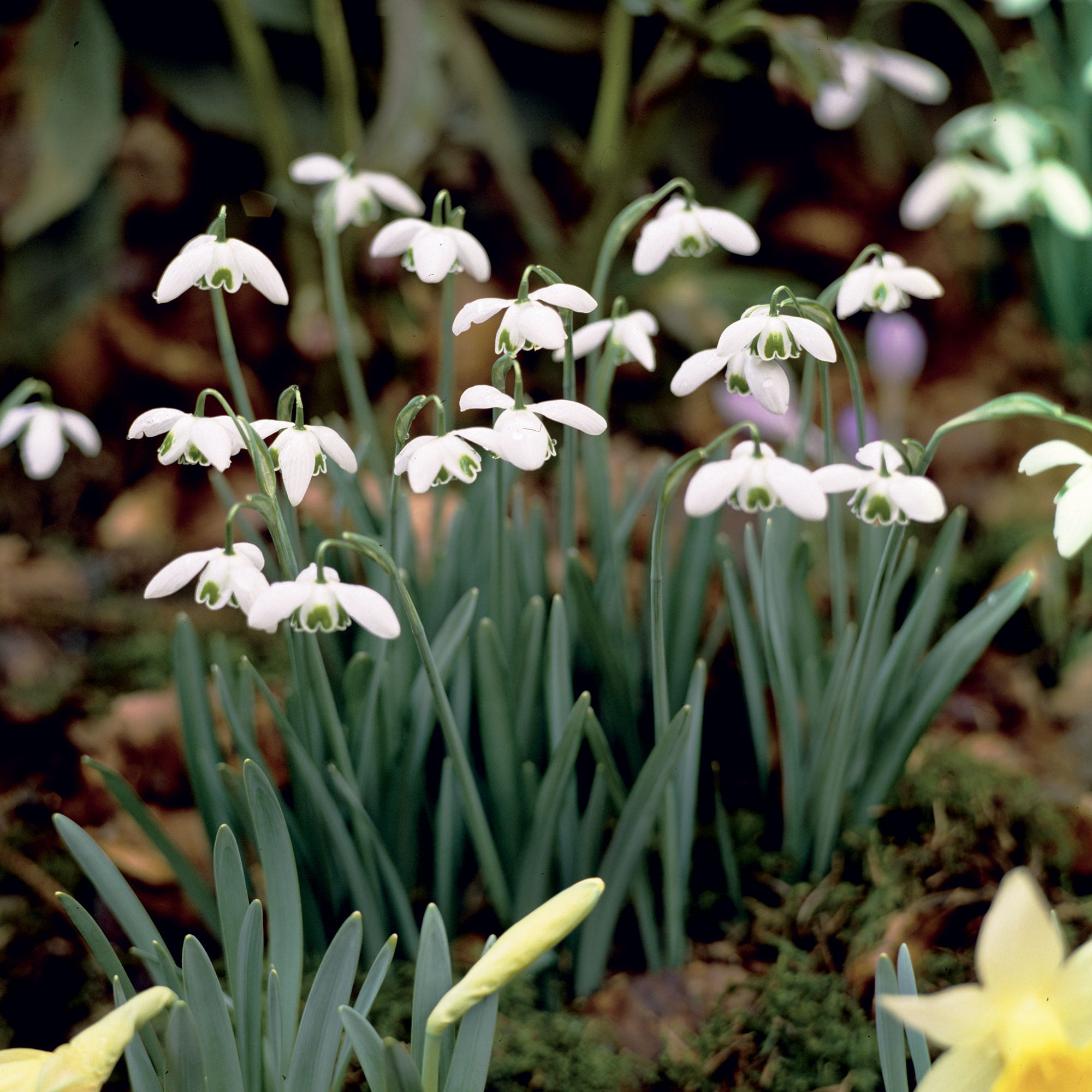
FAQs
Can I plant snowdrop bulbs in September?
Although it’s best to wait until October or November to plant your snowdrops, that doesn’t mean that you can’t plant them in September. However, there is a chance that they won’t grow as well during this time - especially if we have a warm and dry September.
How many snowdrop bulbs should I plant together?
If you want to fill your garden with snowdrops and appreciate a large display in all of its glory, it’s suggested that you should plant snowdrops in groups of around 10-25.
That’s because each bulb will only produce a few leaves and one flower, meaning you often have to plant more to fill out your space.
Of course, this all depends on the area that you’re working with and how large of a planting space you have. But if you’re not sure how many to plant in your pot or garden border, all you have to do is follow the 10cm rule. This rule states that you should plant each bulb 10cm away from each other.
Just be careful not to overdo it, though, as snowdrops can very easily become overcrowded. This will stunt their growth and even stop them from flowering.
Do snowdrops come back every year?
Snowdrop bulbs multiply, bringing more and more flowers to the table each year. And while this is a welcome addition to those who have lots of space in their garden, it can just as easily cause overcrowding.
Don’t worry, though, you can split up these extra bulbs and plant them elsewhere.
Get the Ideal Home Newsletter
Sign up to our newsletter for style and decor inspiration, house makeovers, project advice and more.

Lauren Bradbury has been the Content Editor for the House Manual section since January 2025 but worked with the team as a freelancer for a year and a half before that. She graduated with a Bachelor’s degree in English and Creative Writing from the University of Chichester in 2016. Then, she dipped her toe into the world of content writing, primarily focusing on home content. After years of agency work, she decided to take the plunge and become a full-time freelancer for online publications, including Real Homes and Ideal Home, before taking on this permanent role. Now, she spends her days searching for the best decluttering and cleaning hacks and creating handy how-to guides for homeowners and renters alike, as well as testing vacuums as part of her role as the Ideal Home Certified Expert in Training on Vacuums, having spent over 110 hours testing different vacuum models to date!
-
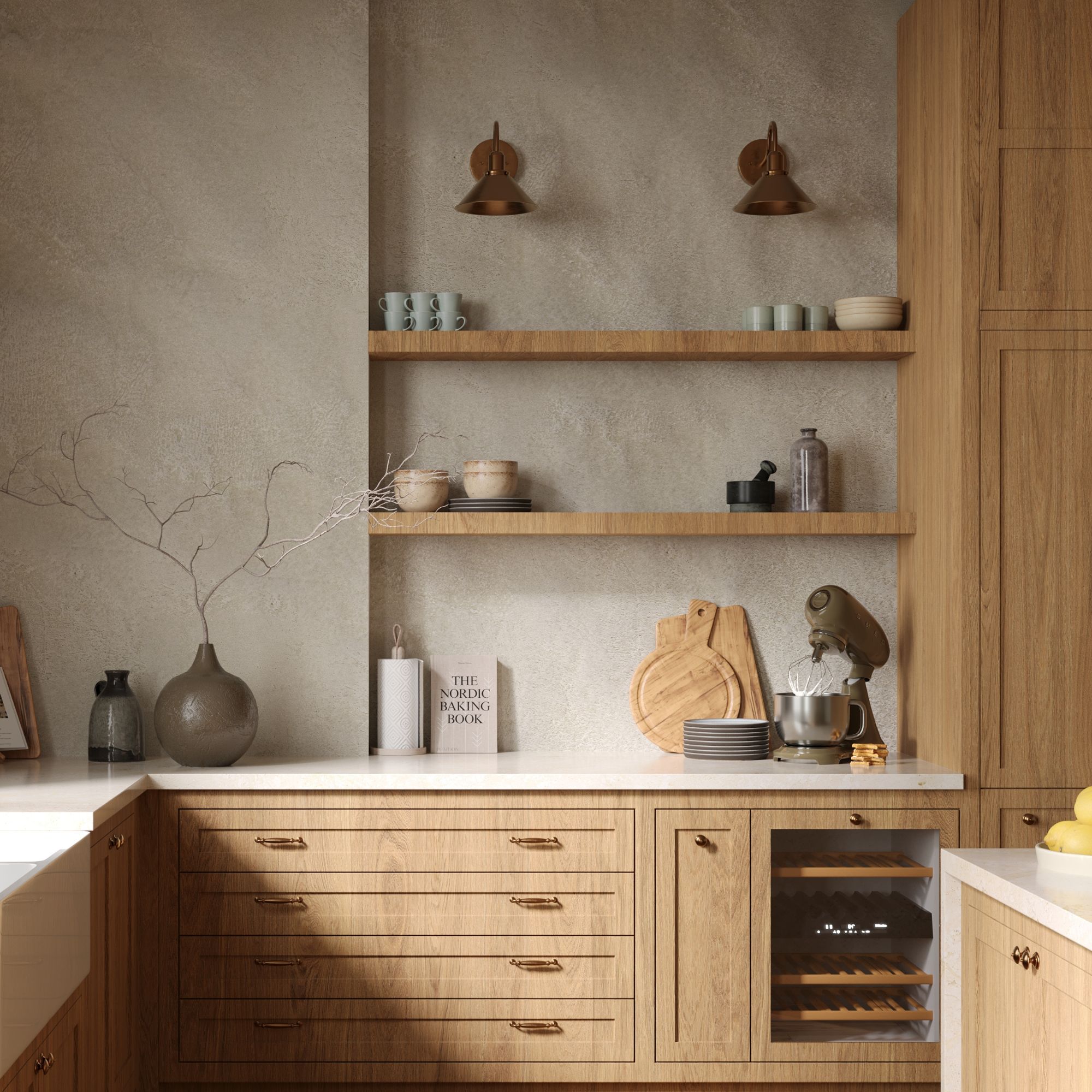 Wood drenching is the calming new twist on the colour drenching trend – here’s how to make the look work in your home
Wood drenching is the calming new twist on the colour drenching trend – here’s how to make the look work in your homeIt’s easier than ever to embrace natural materials
By Maddie Balcombe
-
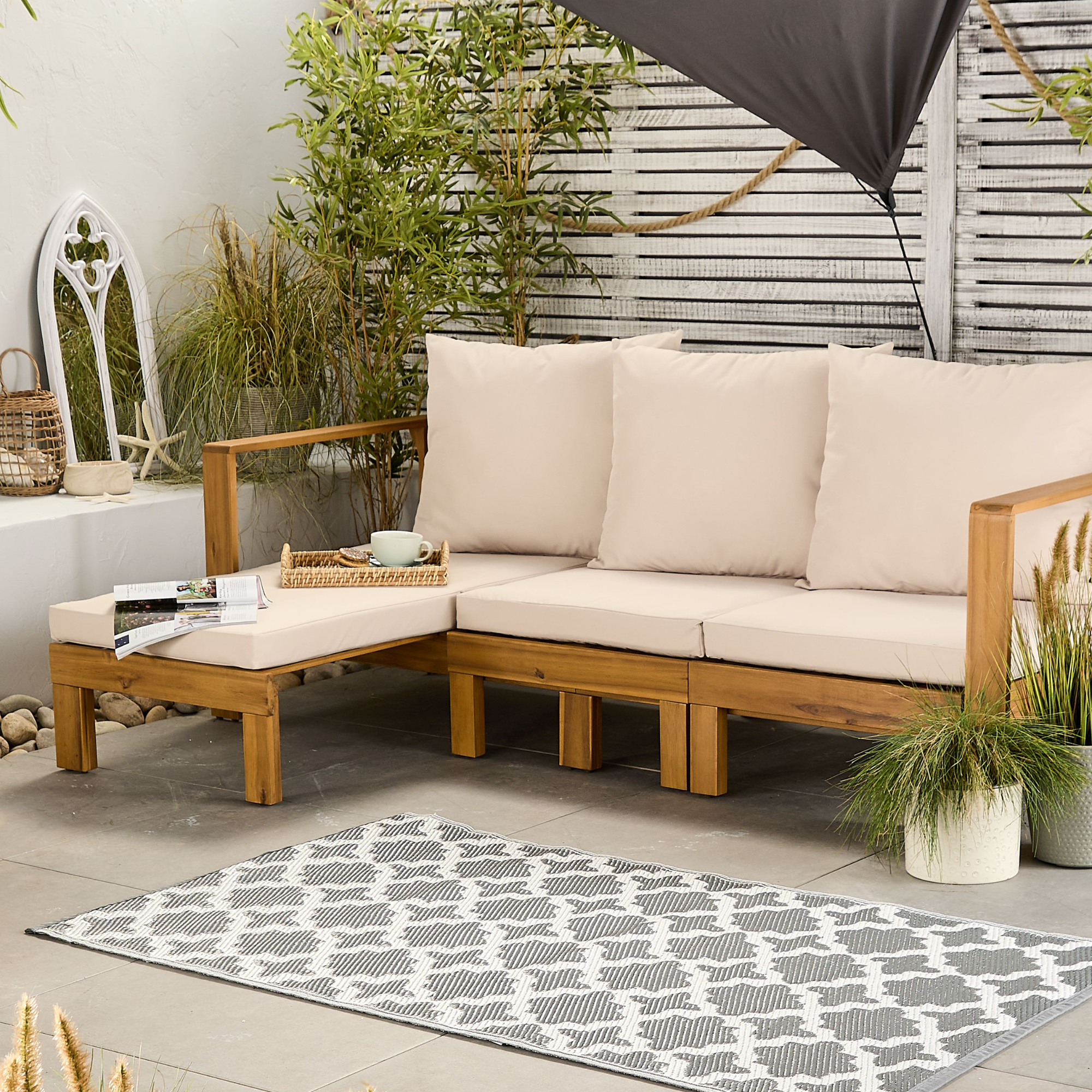 Aldi is launching a £200 day bed with four different features - its sleek design is suited to the whole family
Aldi is launching a £200 day bed with four different features - its sleek design is suited to the whole familyYou don't want to miss out on this Specialbuy
By Kezia Reynolds
-
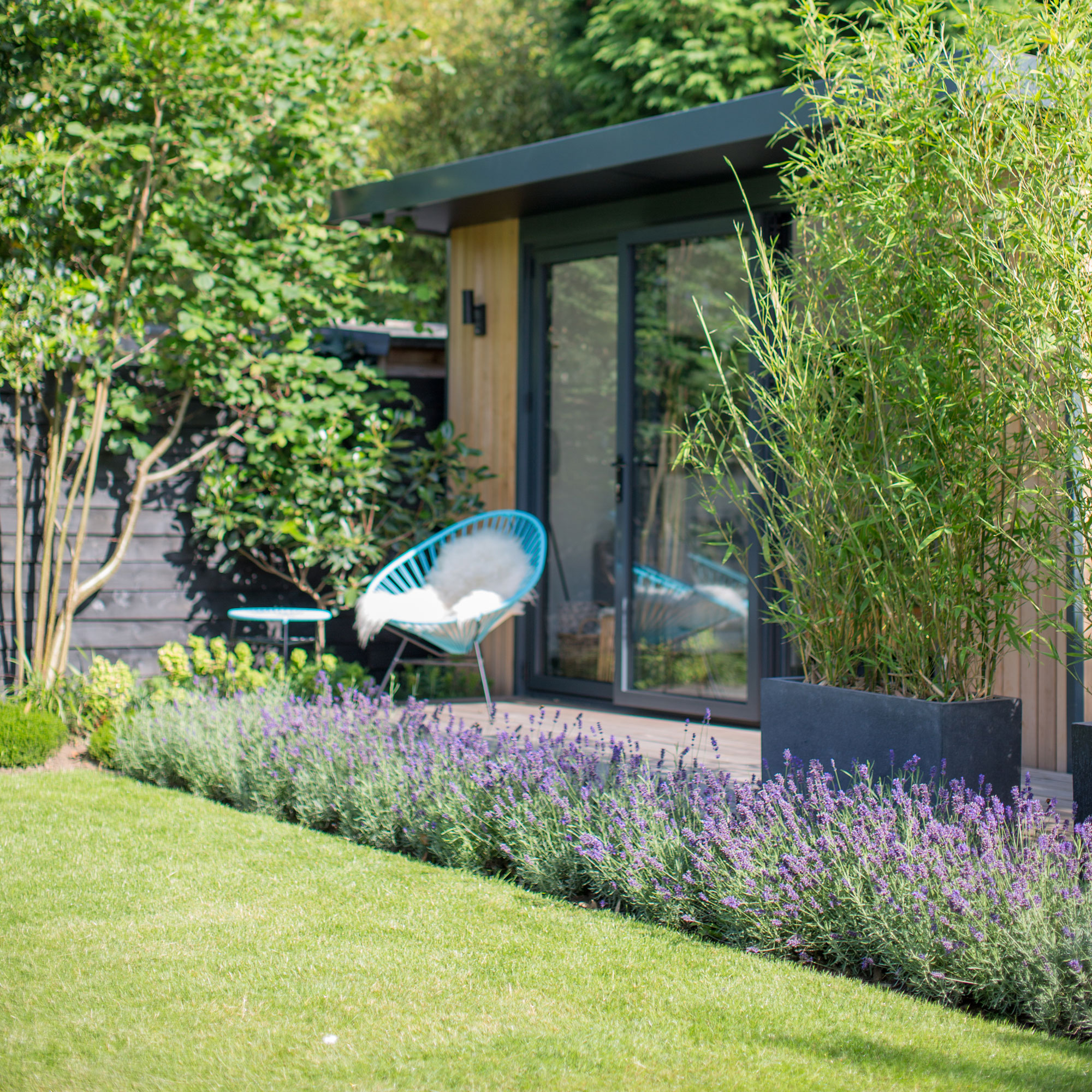 How to set up a drip watering system that saves water and a lot of effort
How to set up a drip watering system that saves water and a lot of effortKeep your plants hydrated (and your water bill down) with this clever garden watering solution
By Natalie Osborn